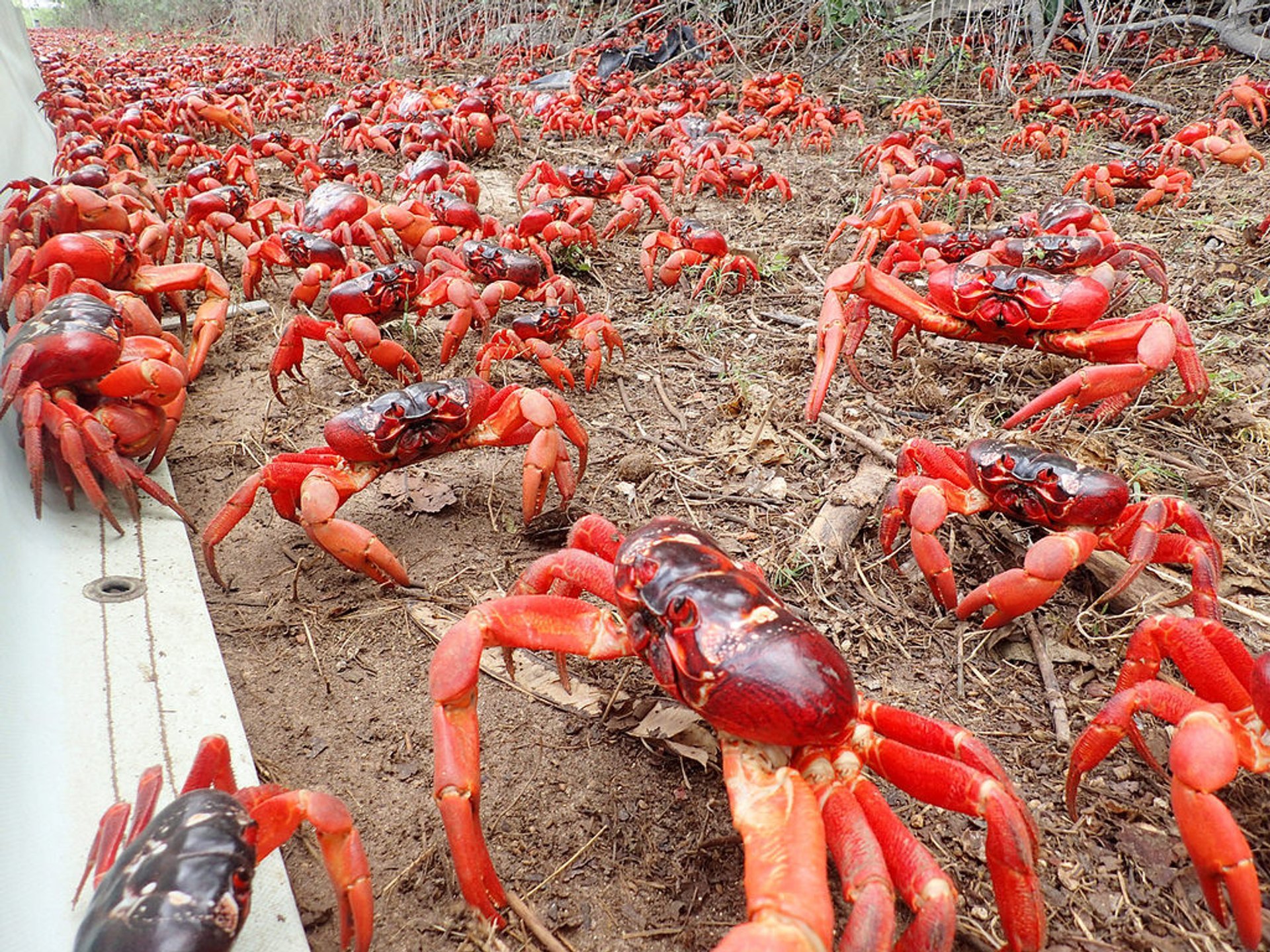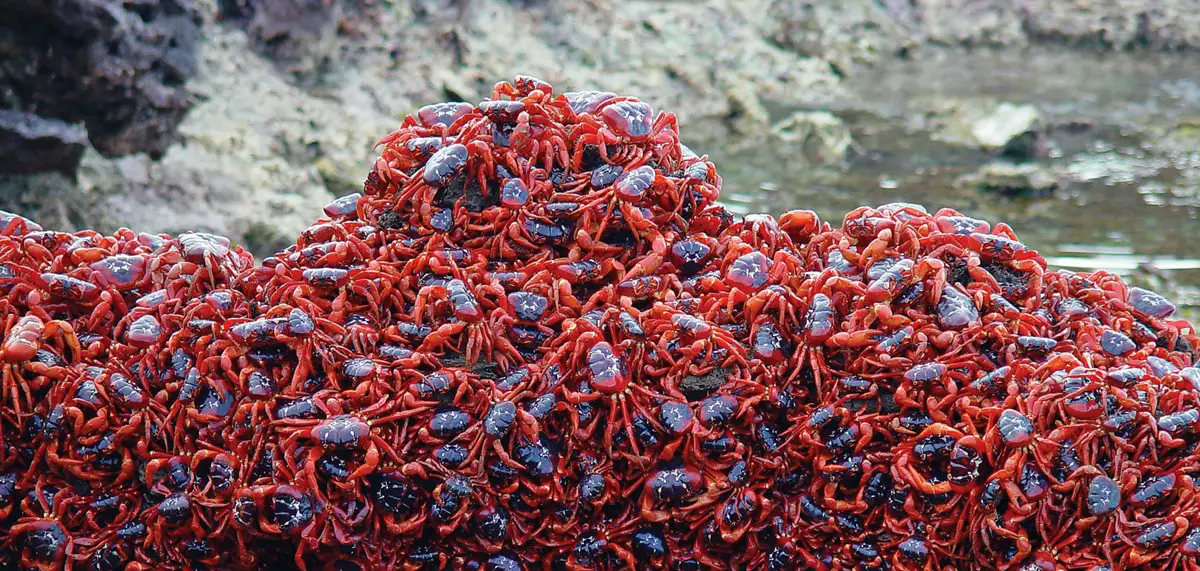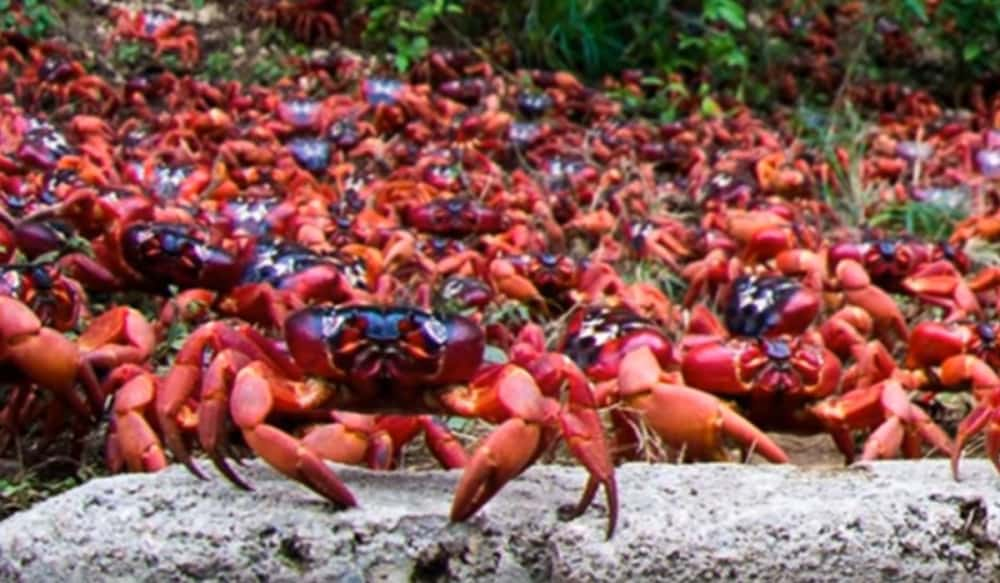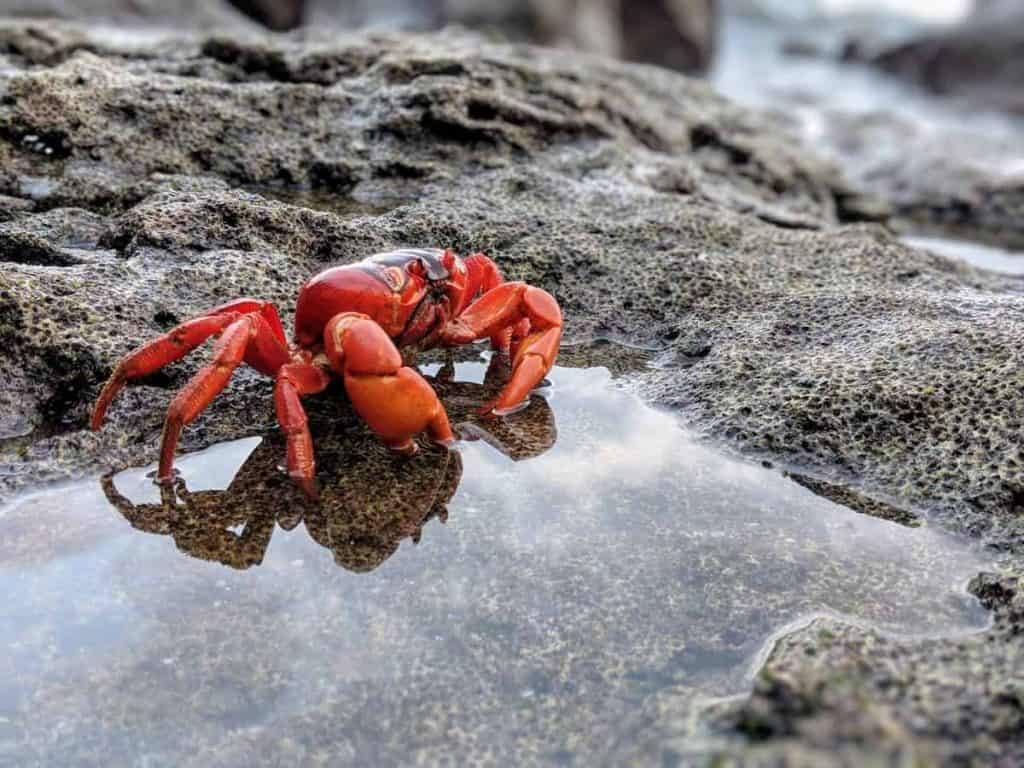Christmas Island Red Crabs Migration 2024: A Once-in-a-Lifetime Wildlife Spectacle
Related Articles: Christmas Island Red Crabs Migration 2024: A Once-in-a-Lifetime Wildlife Spectacle
- Christmas In July Events Near Me For Adults 2024
- Christmas Images To Print And Color 2024: Festive Fun For All Ages
- Christmas Images Hat 2024: Festive Headwear To Embrace The Holiday Spirit
- Christmas In July Jokes 2024: Get Ready For A Jolly Good Laugh
- Christmas In The Quad Cities 2024: A Season Of Merriment And Magic
Introduction
With great pleasure, we will explore the intriguing topic related to Christmas Island Red Crabs Migration 2024: A Once-in-a-Lifetime Wildlife Spectacle. Let’s weave interesting information and offer fresh perspectives to the readers.
Table of Content
Video about Christmas Island Red Crabs Migration 2024: A Once-in-a-Lifetime Wildlife Spectacle
Christmas Island Red Crabs Migration 2024: A Once-in-a-Lifetime Wildlife Spectacle

Every year, millions of vibrant red crabs embark on an extraordinary journey on Christmas Island, a remote Australian territory in the Indian Ocean. This mass migration, known as the Christmas Island Red Crabs Migration, is a captivating natural phenomenon that attracts wildlife enthusiasts and nature lovers from around the globe.
In 2024, the migration is expected to reach its peak between October and December, offering visitors a chance to witness this incredible spectacle firsthand. Here’s everything you need to know about the Christmas Island Red Crabs Migration 2024:
Background and Significance
Christmas Island Red Crabs (Gecarcoidea natalis) are endemic to Christmas Island, meaning they are found nowhere else on Earth. These crabs play a vital role in the island’s ecosystem, contributing to nutrient cycling and seed dispersal.
The annual migration is triggered by the onset of the wet season. As the island receives heavy rainfall, the crabs emerge from their burrows and embark on a journey to the coast to breed. This mass movement is a remarkable sight to behold, with countless crabs covering the ground, roads, and even buildings.
Migration Route and Timeline
The migration route varies slightly each year depending on rainfall patterns. However, the crabs typically travel from the island’s central plateau to the coast, covering distances of up to 8 kilometers (5 miles).
The migration begins with a mass exodus of crabs from their burrows. This usually occurs during the first heavy rainfall after the dry season. The crabs then follow well-defined trails, often using the same paths year after year.
The migration can take several weeks, with the peak occurring when the majority of the crabs reach the coast. During this time, the crabs are extremely vulnerable, as they must cross roads and other obstacles.
Breeding and Return
Once at the coast, the crabs engage in breeding. Male crabs compete for mates, and successful pairings produce eggs. The female crabs carry the eggs for several weeks, until they hatch into tiny larvae that are released into the ocean.
After breeding, the crabs begin their return journey to the forest. This occurs over a shorter period than the outward migration, and the crabs typically follow a different route.
Witnessing the Migration
The Christmas Island Red Crabs Migration is a truly unforgettable experience. Visitors can observe the crabs from designated viewing areas along the migration routes. It is important to note that the crabs are protected by law, and visitors must not disturb or harm them.
To ensure the safety of both the crabs and visitors, the Christmas Island National Park implements a number of measures during the migration period. These include road closures, speed restrictions, and designated crossing points.
Peak Migration Dates 2024
The exact dates of the peak migration in 2024 will depend on rainfall patterns. However, based on historical data, the following dates are estimated:
- Outward Migration: Mid-October to early November
- Peak Migration: Late October to early December
- Return Migration: December to January
Planning Your Visit
If you are planning to witness the Christmas Island Red Crabs Migration 2024, it is advisable to book your flights and accommodation well in advance, as the island is a popular tourist destination during this period.
The island has a range of accommodation options, from budget-friendly guesthouses to luxury resorts. Visitors can also choose to stay in nearby Perth, Western Australia, and take a day trip to Christmas Island.
Conservation and Sustainability
The Christmas Island Red Crabs Migration is a fragile natural phenomenon that requires conservation efforts. Visitors are encouraged to follow park regulations and minimize their impact on the environment.
One of the biggest threats to the crabs is light pollution. Artificial light can disorient the crabs during their migration, making them more vulnerable to predators. Visitors are urged to use flashlights only when necessary and to avoid shining them directly at the crabs.
A Wildlife Spectacle Not to Be Missed
The Christmas Island Red Crabs Migration is a breathtaking natural event that showcases the incredible diversity and beauty of the Australian wilderness. By planning your visit responsibly and respecting the crabs’ natural behaviors, you can witness this once-in-a-lifetime spectacle while contributing to its conservation.





![]()


Closure
Thus, we hope this article has provided valuable insights into Christmas Island Red Crabs Migration 2024: A Once-in-a-Lifetime Wildlife Spectacle. We thank you for taking the time to read this article. See you in our next article!
